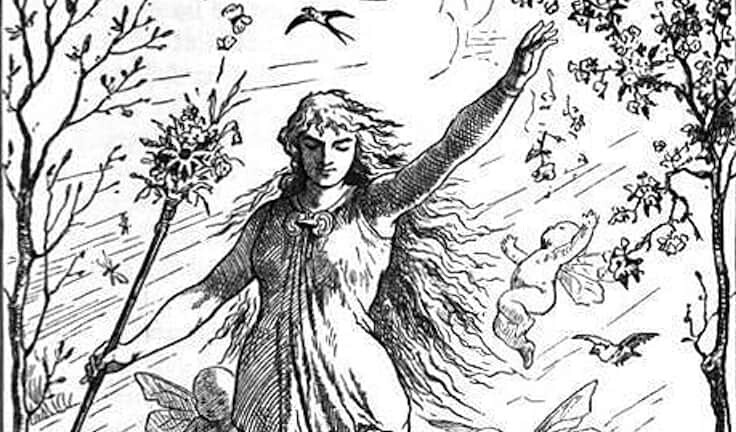Os Cognatos são palavras que normalmente nos ajudam a traduzir ou compreender um texto quando ainda estamos formando nosso vocabulário, mas muitos deles não são nossos amigos, pois, apesar de ser parecido com nossa língua, eles têm a tradução completamente diferente do que esperamos que seja.
1- Dadas as afirmações de que em português:
- SCHOLAR significa LETRADO;
- SENSIBLE significa SENSATO;
- FABRIC significa TECIDO.
b) Apenas a afirmação nº 2.
c) Apenas a afirmação nº 3.
d) Apenas as afirmações nº1 e nº 2.
e) Todas as afirmações.
2 - Dadas as sentenças:
- The boys __________ the game yesterday night.
- He gave a __________ of diamond to his mother.
- I didn’t like the film, it was __________.
- They __________finished the test.
a) assisted /collar /terrific /eventually.
b) assisted /necklace /terrific /eventually.
c) watched /necklace /terrible /finally.
d) watched /collar /terrific /finally.
e) watched /necklace/ terrific/ eventually.
3 - In “ They pretended to be dead”, TO PRETEND means:
a) Entender.
b) Pretender.
c) Fingir.
d) Tender.
e) Fazer.
4 - In “They suffered from the injuries sustained in the crash”, INJURIES means:
a) Ofensa.
b) Ferimentos.
c) Injúrias
d) Calúnias.
e) Fraturas.
5 - Quando alguém diz que está atrasado para “the College”, esse alguém está atrasado para:
a) Colégio
b) Casebre
c) Coliseu
d) Universidade
e) Escola
6 - Se alguém disser que deseja 'a dessert', o que essa pessoa deseja?
a) um deserto
b) uma viagem
c) uma refeição
d) uma sobremesa
e) novas descobertas
7 - Se eu te digo que quero ‘an avocado’, qual é a sua reação?
a) Sai correndo
b) Diz que conhece um advogado
c) Oferece um abacate
d) Diz que não é invocado
e) Oferece um sanduíche
8 - Se alguém referir-se a algo como 'comprehensive', essa pessoa está se referindo a algo:
a) Capaz
b) Compreensivo
c) Abrangente
d) Ilusório
9 - O que a sentença, em inglês, “She construes her strategies completely well, they like it a lot.” quer dizer em Português?
a) Ela construiu sua estratégia completamente bem, eles gostaram bastante.
b) Ela elaborou sua estratégia completamente bem, eles gostaram bastante.
c) Ela explicou sua estratégia completamente bem, eles gostaram bastante.
d) Ela mostrou sua estratégia completamente bem, eles gostaram bastante.
b) The …………………… (discipline/subject) I hate most is Maths.
c) ………………. (Actually/Nowadays) I´m living with my parents again.
d) I´ve got a …………. (cold/constipation). Please pass me the tissue.
e) I was only living with my parents …………… (eventually, temporarily).
f) The government have ………. (invested/inverted) a lot of money in the new scheme.
g) Do not ……………. (invert/invest) this package.
h) We did not enjoy the party ……………. (at all/absolutely).
i) English is very ……….. (important/interesting) for my job.
j) My family live in England, but I have some ………. (parents/relatives) in Britain.
k) He …………. (pretends/intends) to be a soldier.
l) ……….. (Eventually/Temporarily) we decided to go on holiday rather tham buy a plasma TV.
m) If you eat this plant you will get ……………. (intoxicated/poisoned).

a) Colégio
b) Casebre
c) Coliseu
d) Universidade
e) Escola
6 - Se alguém disser que deseja 'a dessert', o que essa pessoa deseja?
a) um deserto
b) uma viagem
c) uma refeição
d) uma sobremesa
e) novas descobertas
7 - Se eu te digo que quero ‘an avocado’, qual é a sua reação?
a) Sai correndo
b) Diz que conhece um advogado
c) Oferece um abacate
d) Diz que não é invocado
e) Oferece um sanduíche
8 - Se alguém referir-se a algo como 'comprehensive', essa pessoa está se referindo a algo:
a) Capaz
b) Compreensivo
c) Abrangente
d) Ilusório
9 - O que a sentença, em inglês, “She construes her strategies completely well, they like it a lot.” quer dizer em Português?
a) Ela construiu sua estratégia completamente bem, eles gostaram bastante.
b) Ela elaborou sua estratégia completamente bem, eles gostaram bastante.
c) Ela explicou sua estratégia completamente bem, eles gostaram bastante.
d) Ela mostrou sua estratégia completamente bem, eles gostaram bastante.
10 - Choose the most appropriate word: (Escolha a palavra entre parênteses mais apropriada)
a) Did you know that Chris got ……………… (embarrassed/pregnant) on holiday in Brazil?
a) Did you know that Chris got ……………… (embarrassed/pregnant) on holiday in Brazil?
b) The …………………… (discipline/subject) I hate most is Maths.
c) ………………. (Actually/Nowadays) I´m living with my parents again.
d) I´ve got a …………. (cold/constipation). Please pass me the tissue.
e) I was only living with my parents …………… (eventually, temporarily).
f) The government have ………. (invested/inverted) a lot of money in the new scheme.
g) Do not ……………. (invert/invest) this package.
h) We did not enjoy the party ……………. (at all/absolutely).
i) English is very ……….. (important/interesting) for my job.
j) My family live in England, but I have some ………. (parents/relatives) in Britain.
k) He …………. (pretends/intends) to be a soldier.
l) ……….. (Eventually/Temporarily) we decided to go on holiday rather tham buy a plasma TV.
m) If you eat this plant you will get ……………. (intoxicated/poisoned).
Respostas
1) E
2) C
3) B
4) B
5) D
6) D
7) C
8) C
9) C
10) a pregnant
b) subject
c) Nowadays
d) cold
e) temporarily
f) invested
g) invert
h) at all
i) important
j) relatives
k) intends
l) eventually
m) poisoned
Conseguiu acertar as respostas?
Gostou dessa publicação? Compartilhe com seus amigos...
Faça um pix em qualquer valor e ajude o blogger continuar ativo.
Chave: bonovx@gmail.com
Bye! See you next one!
